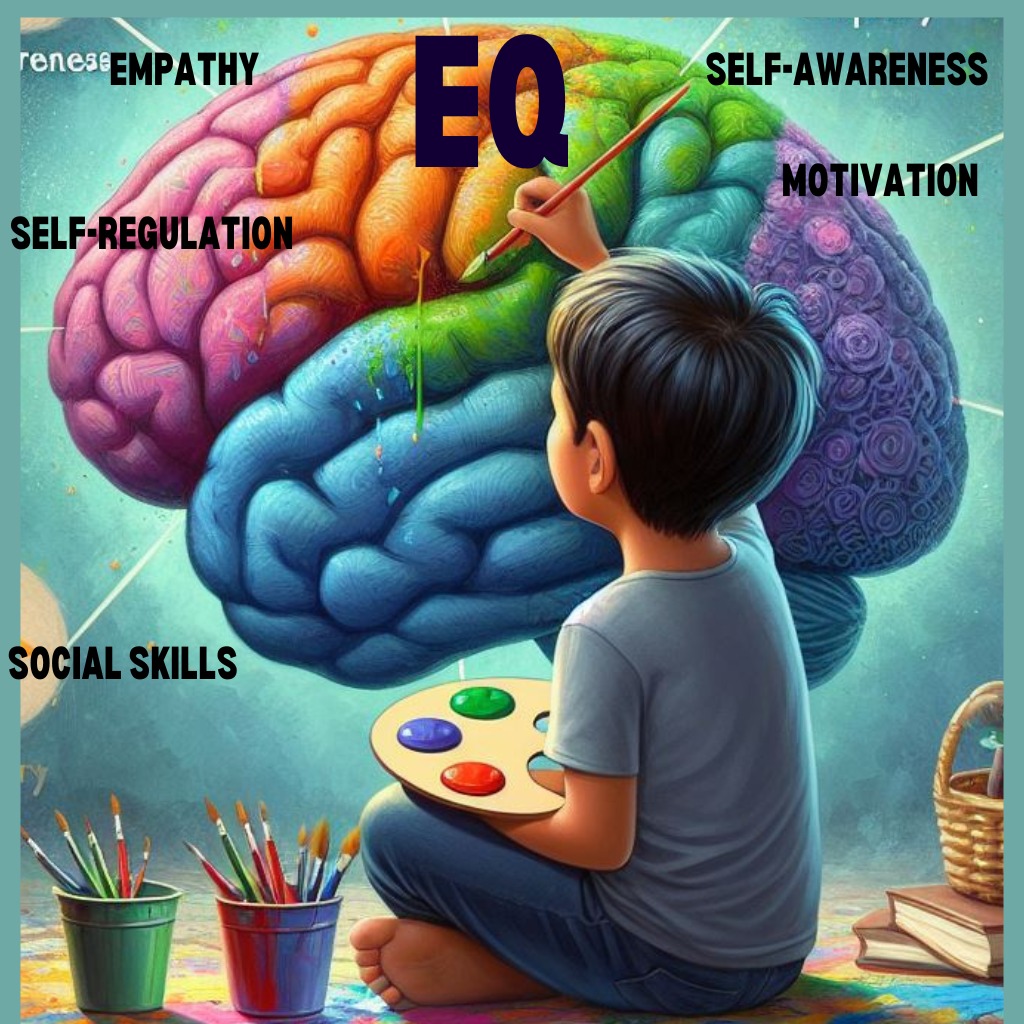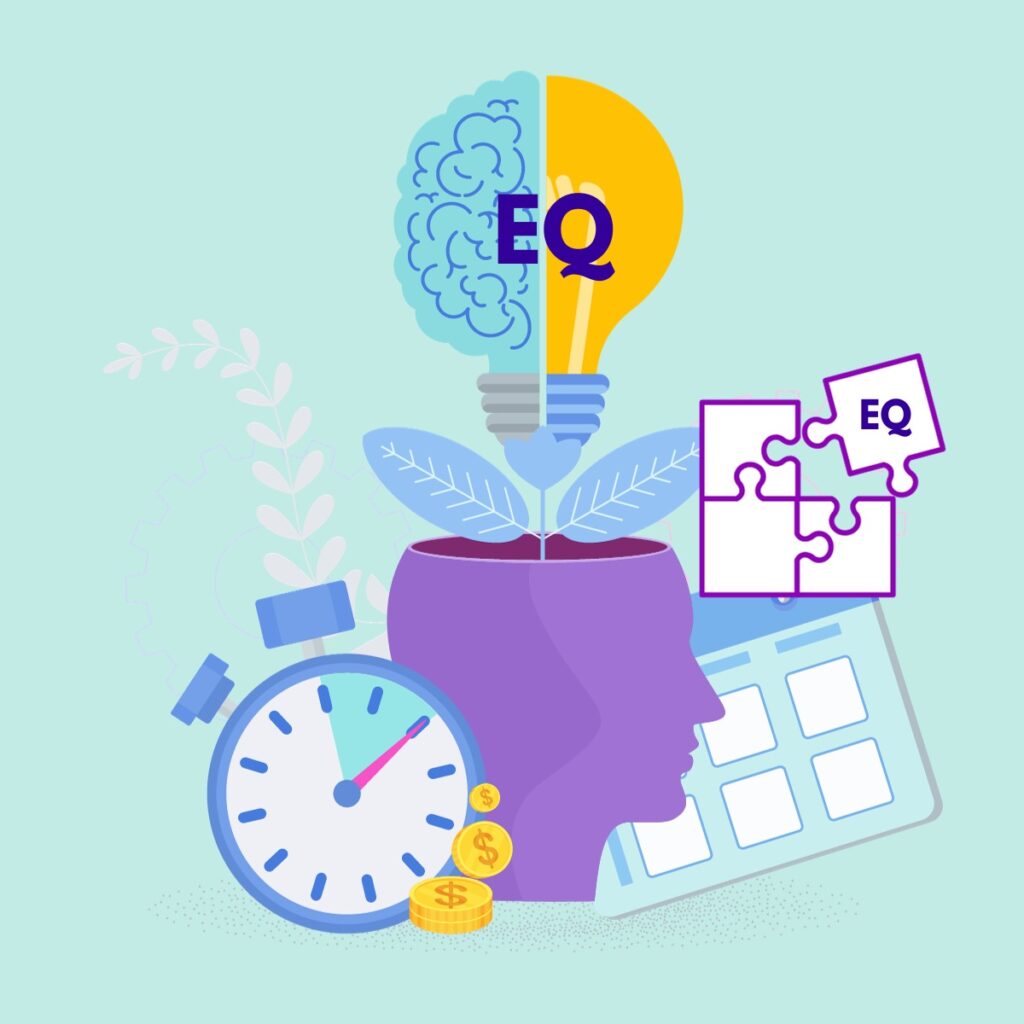UNPACKING THE BASICS OF EMOTIONAL INTELLIGENCE
In today’s fast-paced and interconnected world, the significance of emotional intelligence (EI) has never been more pronounced. Beyond traditional measures of success, individuals with high emotional intelligence are increasingly recognized for their ability to navigate complex social landscapes and build meaningful relationships, both personally and professionally.
Delving into the neurobiology of emotional intelligence sheds light on the intricate connection between emotions and the brain. Research suggests that the prefrontal cortex, amygdala, and other brain regions play pivotal roles in emotional processing and regulation. Meanwhile, the prefrontal cortex, involved in decision-making and impulse control, is crucial for regulating emotional responses. Understanding the neurobiological underpinnings of emotional intelligence not only provides insight into its functioning but also opens avenues for targeted interventions and training programs aimed at enhancing these skills.

At its core, emotional intelligence encompasses a range of skills and qualities, with self-awareness, self-regulation, empathy, motivation, and social skills standing out as its major components.
- Self-Awareness:
- Recognition of Emotions: Ability to identify and understand one’s own emotions.
- Emotional Honesty: Being honest with oneself about feelings and reactions.
- Insight: Understanding how emotions impact thoughts, decisions, and behavior.
Self-awareness is the foundation of emotional intelligence, providing the basis for developing other EI skills. It enables individuals to manage stress, make sound decisions, and exhibit authenticity.
- Self-Regulation:
- Emotional Control: Managing and controlling impulsive reactions.
- Adaptability: Flexibility in adjusting to changing circumstances.
- Stress Management: Effectively handling and coping with stressors.
Self-regulation allows individuals to maintain composure, adapt to change, and handle challenging circumstances with resilience. It is essential for making rational decisions rather than being driven solely by emotions.
- Empathy:
- Understanding Others: Sensitivity to and comprehension of others’ emotions.
- Perspective-Taking: Ability to see situations from different points of view.
- Compassion: Showing care and understanding for others’ emotional experiences.
Empathy fosters positive interpersonal relationships, effective communication, and collaboration. It enables individuals to connect with others on a deeper level, leading to improved teamwork and conflict resolution.
- Motivation:
- Intrinsic Drive: Internal motivation beyond external rewards.
- Goal Orientation: Setting and working towards meaningful, challenging goals.
- Resilience: Bouncing back from setbacks and maintaining motivation.
Motivated individuals are driven to pursue excellence and persist in the face of setbacks. This aspect of emotional intelligence fuels ambition, resilience, and a commitment to continuous improvement.
- Social Skills:
- Communication: Effective verbal and non-verbal communication.
- Conflict Resolution: Managing conflicts and finding mutually beneficial solutions.
- Collaboration: Building and maintaining positive relationships with others.
Social skills are crucial for successful interactions in both personal and professional settings. Individuals with strong social skills can navigate social complexities, collaborate effectively, and influence others positively. EI enables individuals to understand and navigate their emotions and the emotions of others. This understanding forms the basis for building strong interpersonal relationships, fostering empathy, and promoting effective communication. The ability to recognize and manage emotions equips individuals with the skills needed to navigate conflicts constructively. High EI individuals can approach conflicts with empathy, find common ground, and work towards mutually beneficial resolutions.



